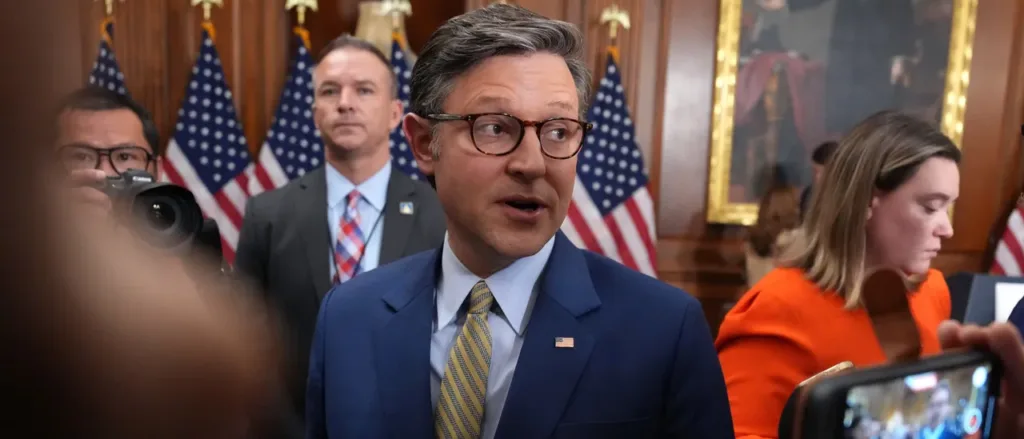Originally published by the Daily Caller
For decades, Americans have watched their hard-earned tax dollars disappear into the bureaucratic swamp of Washington, D.C. With a national debt topping $36 trillion and interest payments threatening to crowd out essential government functions, it’s long past time to get serious about reining in waste, fraud, and abuse.
The White House’s first proposed rescissions package is a long-overdue step toward restoring fiscal sanity to a federal government that’s lost sight of accountability.
A rescission is not a cut to essential services. It’s a targeted, responsible approach to start rightsizing a bloated federal bureaucracy. This package identifies nearly $10 billion in unspent, unobligated funds—money that has been sitting there with little real benefit to the American people.
This is a start. One we’ve needed for years. It will become clear, after a simple look at the programs being rescinded, that the vast majority of Americans wouldn’t open up their wallets to fund these causes. $2.1 million for so-called climate “resilience” in Southeast Asia, Latin America, and East Africa. $5 million for “green transportation and logistics” in Eurasia. Another $5.1 million for “resilience of lesbian, gay, bisexual, trans gender, intersex, and queer global movements.” And $135 million in contributions to the World Health Organization (WHO).
If Congress can’t find the political will to cut waste with all that DOGE has recently uncovered, how will we ever hope to tackle the real drivers of our long-term debt?
What’s especially frustrating is how normalized this culture of excess has become in Washington. Congress authorizes trillions in spending every year, but almost never goes back to see what worked, what didn’t, or what should never have been funded in the first place. Families don’t get to live like that. When a household’s budget tightens, they cut back and focus on what matters most. Congress should be held to the same standard.
The rescissions package is a step toward that accountability. It gives Congress the chance to take a second look and say, “We don’t need to spend this money.” That’s a power we should use more often, not less. And for the American People, it will be a good first look at who’s willing to put their vote behind their campaign rhetoric surrounding fiscal responsibility.
Every dollar wasted in Washington is a dollar that could have stayed in the pocket of a hardworking American. Every inefficient program is a missed opportunity to invest in programs that actually serve the people and every instance of fraud or abuse chips away at the public’s trust in government.
Wasteful spending isn’t a partisan issue. Or at least, it shouldn’t be. Democrats and Republicans alike should agree that tax dollars should be spent wisely, efficiently, and transparently. Yet too often, good-faith efforts to clean up the budget are described as “extreme” or “attacks on the poor.” That’s nonsense. Eliminating wasteful programs and unneeded funds is not extreme—it’s common sense.
Frankly, we should be going further. Audit every agency. Demand measurable outcomes for every taxpayer dollar. Hold the Bureaucratic Apparatus accountable when they mismanage funds. And reward innovation and efficiency wherever we find it. This rescissions package is just one piece of that puzzle—but it’s an important one.
This week, I urge the House to put our walk where our talk is and get this done. Our financial future depends on it. We can’t keep kicking the can down the road and expecting our kids and grandkids to pay the price for our irresponsibility. It’s time for a course correction—a return to discipline, stewardship, and real savings for the American taxpayer.
Let’s stop rewarding inefficiency and start governing with discipline. The American people deserve nothing less.
Rep. Michael Cloud represents the 27th Congressional District of Texas and is a member of the House Appropriations Committee and the House Committee on Oversight and Accountability.
